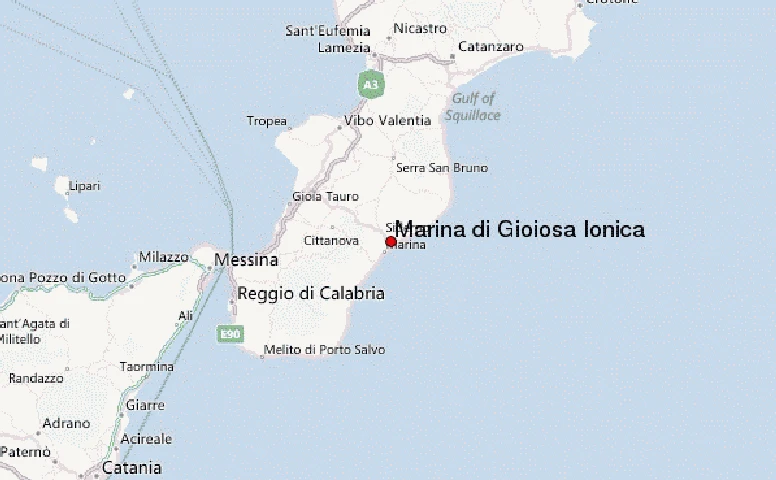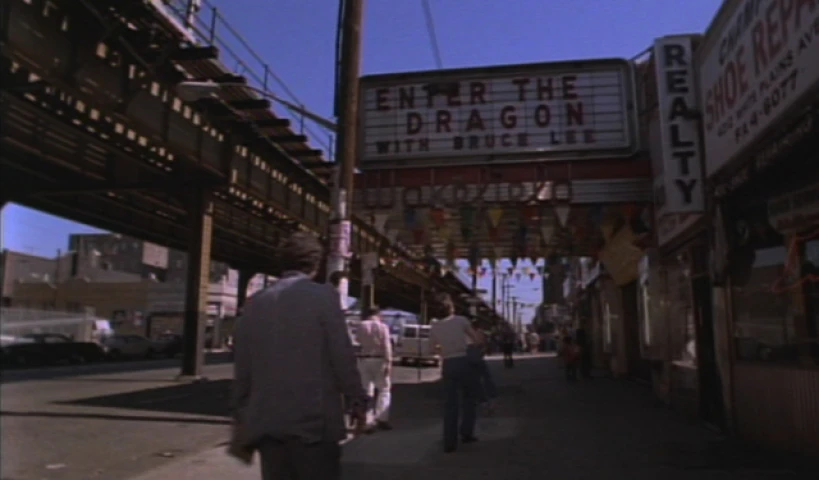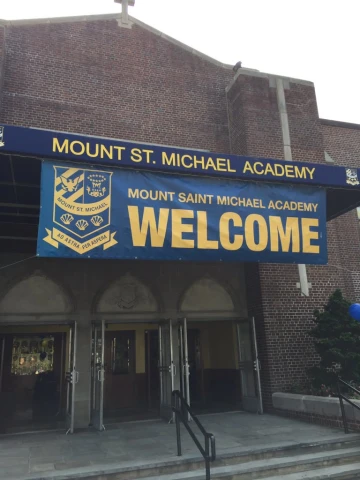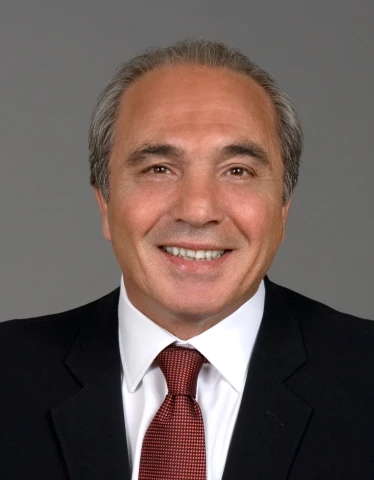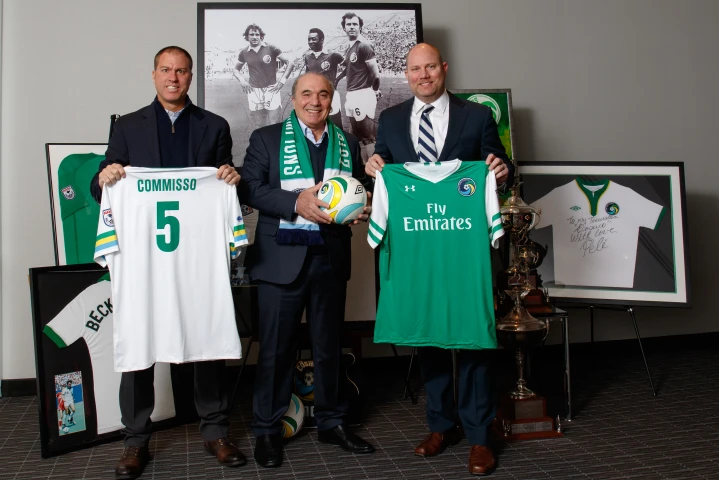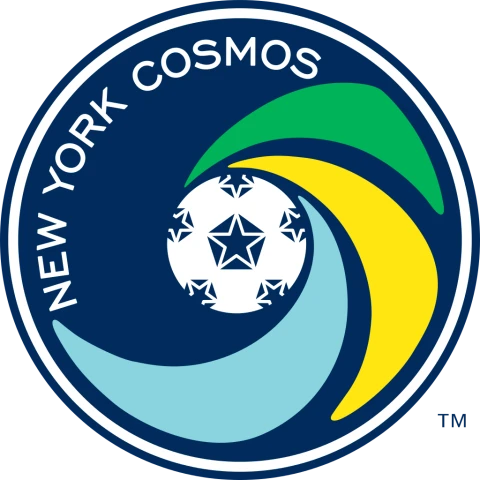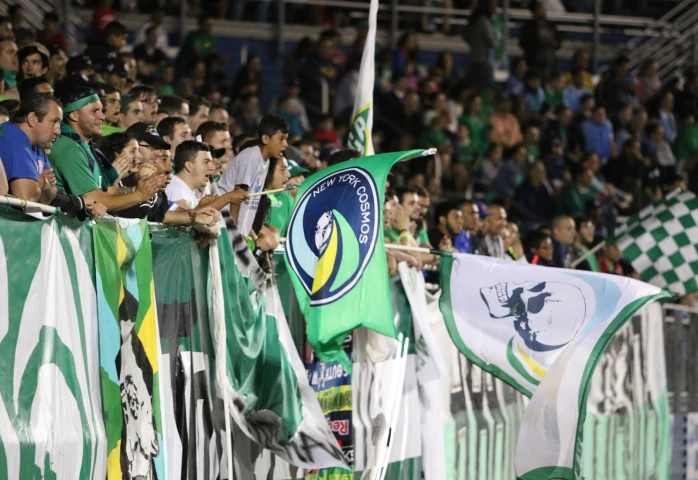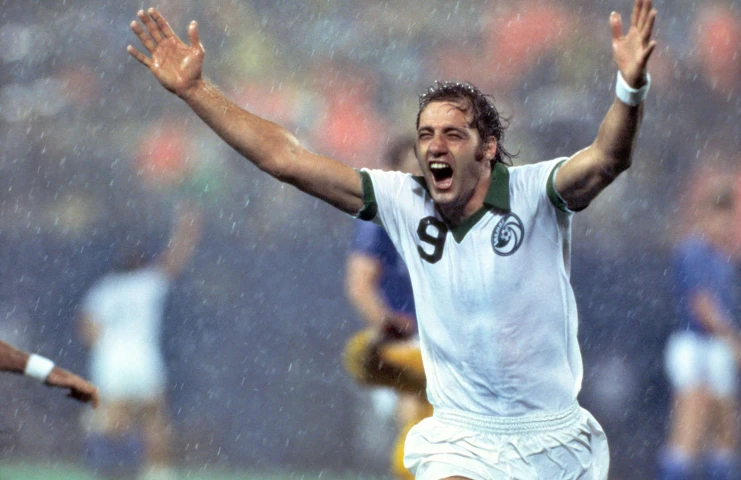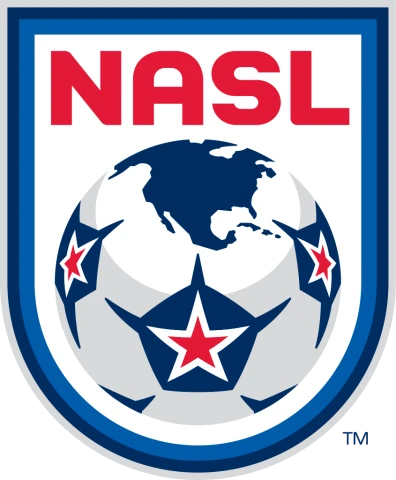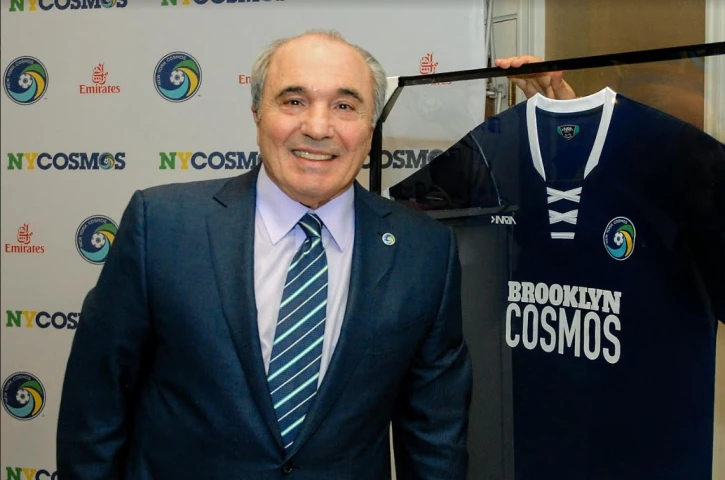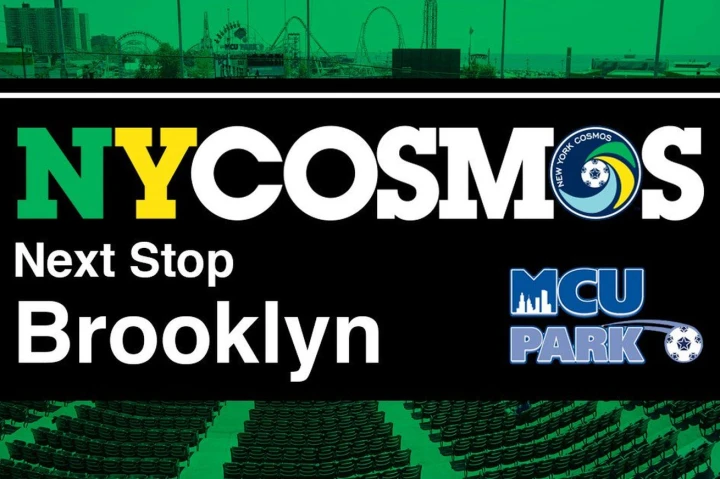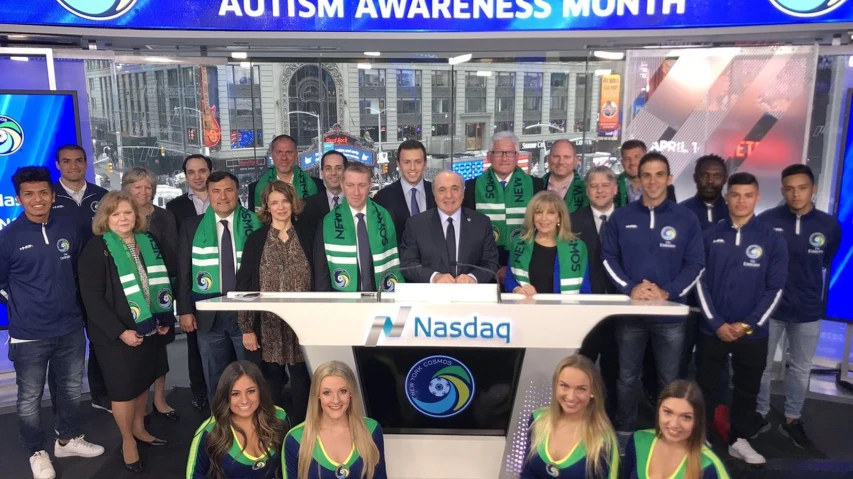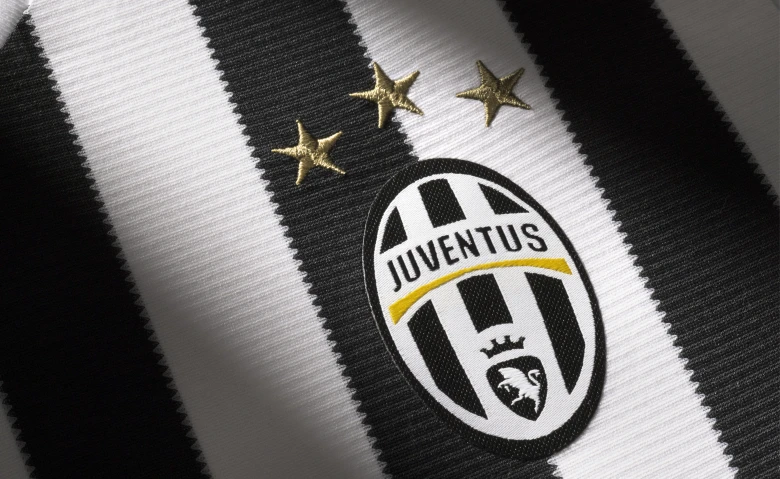This is the interview #160 I publish with We the Italians. Looking back, I am astonished and proud and honored when I understand how great, committed and excellent are the people that gave me the privilege to share with me and our readers their stories, their pride of being Italian, their knowledge about 159 different point of view from which analize the relationship between Italy and the US. I am lucky, and thankful to all of them.
I thought that for the interview # 160, I had to look for someone particular. Someone exceptional in more than one way. And so I went upstate New York, through the snow, and I met with the guest of this new interview: someone really incredible, so Italian and though so American, whose life could really be the script of a movie. Ladies and gentlemen, We the Italians welcome Mr. Rocco Commisso.
Mr. Commisso, yours is a wonderful story of success, that combines the excellence of the Italian DNA with America as the land of opportunity. Could you please briefly describe how a young immigrant from Italy became so accomplished in America?
I was born and raised in Marina di Gioiosa Ionica, in the Province of Reggio Calabria, an idyllic seaside community but economically devastated by the after-shocks of WWII. Back then and probably still today, I could not have found in Italy the enormous opportunities to succeed that are available in America, especially if you are willing to work hard. I came here at the age of 12, and although I was doing ok at school and I didn't want to leave Italy, I started loving America right after a few weeks here.
The first break that I received is when I arrived in the United States, where we moved just outside of Pittsburgh, Pennsylvania. I was in 6th grade when we left Italy and, traditionally, when you immigrate to America they move you back to the 5th grade. But after only 3 days in this country, on April 1st 1962, my father convinced the school principal to admit me to the 7th grade, and in less than 3 months I got promoted to the 8th grade. From my perspective, I gained 3 years of schooling in 3 months, even though I could not even speak more than a few sentences of the English language.
Then in July 1963 we moved to New York, in the Bronx. In the very first week in New York, I was walking under the elevated subway and I saw a sign that the Wakefield Theatre was having a talent show. I applied and I won the competition playing my accordion. So, every Wednesday, I would go to the movie theater to play the accordion for the audience.
If you want to get into the best Catholic high schools in New York City, you have to take the admission test in the fall or spring of the 8th grade. But I was too late because I came to New York in July and the school was starting in September. That was the beginning of my hustling career, and by hustling, I mean creating opportunities through sheer determination. The manager of the Wakefield Theatre offered to finance my music education by sending me to the Berkeley Conservatory in Boston. I declined his offer, but I did ask him for one favor. I said "why don't you send a letter to the principal at Mount Saint Michael Academy, who would not accept me because I never took the entrance exam?" So he sends a letter and I get admitted, all because of my accordion.
During my high school years, my brother had a luncheonette that later became a pizzeria. I worked 40 hours a week, making pizza, scooping up ice, serving people, all during my high school years. I also went to school during the summertime, not because I failed any subjects, but because I wanted to take advanced courses.
Other than handball, I did not play any sports during high school because Mount Saint Michael did not have a soccer team. This did not stop me from hustling my way into a good private University, without having to pay anything. I asked my high school gym teacher to help me connect with the soccer coach at NYU, who put me on the American Czechoslovakian team. I played five or six games and he liked me enough to offer me a scholarship. The problem is that it was a 50% scholarship. So as soon as I was admitted to NYU, I went back to the gym teacher and I said, "Why don't you now call the Columbia soccer coach." Interestingly, the Columbia coach never saw me play a minute of soccer. He believed that if am good enough to play at NYU, I will easily make it on the Columbia team. In the end, I got admitted into Columbia with a full scholarship, a value of $75,000 a year in today’s dollars.
Going to Columbia turned out to be the biggest break in my life.
But I did not disappoint the Columbia coach. In my freshman year, we had an undefeated season. During the next 3 years, I was named to the All-Ivy League Team. In my senior year, I was honored to be the Co-Captain of the team, leading it to the first NCAA Playoffs in Columbia history, and I was invited to try-out for the 1972 USA Olympic Team.
And probably because of my Columbia soccer experience is the reason why today I am involved with the New York Cosmos.
Columbia provided me the opening to a pretty successful career in the business world. In America, you need to go to the right school to get the right jobs. Columbia is among the top five universities in the world, and gave me the opportunity to quickly find a job, with Pfizer Pharmaceutical.
A few years after I started work at Pfizer in 1971, I hustled myself into Columbia again. I asked my boss to put me on the 4-12 night shift in Brooklyn, so that I could also go to Columbia to get my MBA during the daytime. I became the only student at Columbia Graduate Business School that was working full time while going to school full time. I lived in the Bronx, went to school in Manhattan, and worked in Brooklyn. My homework was done while I was riding the subways. And I also found time to become President of the business school student body.
You are given the opportunity, here in America, but you also need to work hard. You can’t just take it for granted. But the beauty about this country is that there's a huge meritocracy, in my opinion. You work hard, you show your bosses that you can make it, and with a bit of luck along the way, the rest will hopefully will take care of itself. You have to take risks, you never have a sure job, they can fire you on the spot, but once you prove yourself and you work hard, like in our company … you can become successful.
We see - and we love - that you are very proud of being Italian. Is there an aspect of your "Italianità," something typically Italian, that helped you become such a successful businessman?
First, I would say that it’s not because I am Italian that I found success in America. Opportunities in our country are provided to all kinds of immigrant groups. But I always tried to uphold who I am, which is being Italian, in everything I did. When I went into the business world, Italians were generally not included in the ethnic groups that could easily get an elite corporate job. I broke that mold. I eventually got in Chase Manhattan Bank in 1976 - the Rockefeller bank - in the heart of Wall Street.
In 1975, I opened the first Italian American discotheque in the entire USA. It was an incredibly busy year - as I was traveling to Toronto to see my fiancé, I was graduating from Columbia Business School, I had a job at Pfizer, and I was starting a disco. In June 1975, we opened the disco, called ACT III, in the Bronx. Six months later, I converted it to a disco for Italian immigrants. This was when the disco scene was big, like Studio 54: you go there at 9pm, you go home at 5 o’clock in the morning, and it’s all fast music. But the Italians are romantics - liking instead to dance tight with their partner. So, for every hour, we used to do 40 minutes of fast American disco music, and 20 minutes of Italian slow music. My fellow Italian immigrants loved it. Close the lights and they would hold each other to dance to the slow romantic music. It was very successful, and I "married" a lot of people there. It was, for the Italian young people, becoming the place to meet and hopefully fall in love with your future spouse. We brought all kind of acts from Italy: Little Tony, Camaleonti, Homo Sapiens, Cugini di Campagna, Gianni Nazzaro.
When I joined Chase Manhattan in January 1976, I found significant prejudice by certain Americans, including my manager, towards this immigrant from Calabria. I went to work for one of the most elite corporate lending groups in the bank, the land transportation division. I was the only Italian American in the entire lending department of the main NYC office at Chase Manhattan Bank. The only other Italians they had were the sons of rich families that they would bring from Italy to be trained, and then send back to Italy.
In the land transportation division, we covered large multinationals like General Motors, Ford, and Chrysler, in addition to the railroad industry, the trucking industry and so on. Now, I’ll never forget this boss of mine, when he said “Rocco, we can’t let you cover General Motors”, the bank’s most elite corporate client. I said “Why not?”, and he answered “Because you don’t have the right background.” So I asked “What’s wrong with my background?” and he said “You’re too flashy, you’ve got this funny sounding name, you wear the wrong clothes…” And I responded: “Even though I went to Columbia and I am the only guy in the division with an MBA from an Ivy League university, graduating with top grades?” “Yeah, that’s the case.” So they put me to cover the trucking industry under their discriminatory belief that I looked and talked like a mafioso and in the trucking industry, according to my boss, there were all kinds of mafioso. It was a mess, and reflected the type of prejudices I faced in my initial days in the banking business.
But interestingly enough, another person of German background saved me and asked me to move to his division which was the entertainment and communications group. That’s when I first got exposed to cable television, in 1978, and that’s when I began lending money to cable companies.
Later on, I joined the Royal Bank of Canada where I started a very successful media and communications lending group. In 1986, I went from banking to working as the Chief Financial Officer for Cablevision Industries, a cable company headquartered in Liberty, New York in the Catskill Mountains. It was a major career and lifestyle change for me, as I transplanted my family from the suburbs of NYC to more rural upstate NY. But it all worked out for me and my family. In less than 9 years, I had a major part in growing Cablevision annual revenues from $100 million to $550 million, and making it the 8th largest company in the nation.
In 1995, my boss decided to sell the company to Time Warner for$2.8 Billion, leading the way to the next chapter in my life - founding Mediacom Communications in the basement of my house. The history of Mediacom is long but very successful. It is a cable television company that operates in the smaller markets of the United States - Iowa, Illinois, Missouri, Minnesota, Georgia, and Florida are the states where we have the most customers, but we also operate in 16 other states. We serve 1.4 million customers, employ over 4,600 men and women, and last year we generated $1.8 Billion in revenues, or over 3 times the size of Cablevision in 1995. Mediacom is 100% owned by me and my family.
Last January you bought the New York Cosmos soccer team. As you rightly said, "The Cosmos is the most recognized American soccer franchise worldwide." For the younger ones, why is this franchise such an historical brand and why was it important for you to save it?
In the 1970s, soccer was really evolving in this country and the Cosmos, under the leadership of Steve Ross and the Ertegun brothers, were the linchpin. Steve Ross was the CEO of Warner Communication, that became Time Warner, and he decided to spend his money to bring the biggest stars to New York. I remember when Pelé came to play here, Henry Kissinger was brought in from the White House to conclude the contract. Pelé was a name that was never seen before in America. He won three World Cups playing for Brazil, unfortunately beating Italy 4-1 in Mexico in 1970. Later on Chinaglia arrived, followed by Beckenbauer, Carlos Alberto, Neeskens and all the other world-class players. It became the franchise that revolutionized professional American soccer. At that time, we could afford to bring these superstars to the U.S. Today we can’t because the big money is overseas. It’s the Chinese or the European clubs that now have the money to be able to sign the global superstars, not the American clubs.
In those Pelé and Chinaglia days, I used to go to the Cosmos games. It was an electric atmosphere and I became a fan of the Cosmos. This iconic team was like nothing the world had ever seen before or since. The problem that happened is that the American owners took a global sport like soccer, and decided to convert it into an American game like football and baseball. They figured America is America and will be the best at everything including soccer. That stubborn attitude continues to haunt American soccer massively to this day. More than 25 million Americans, young and old, have been exposed on the playing field to soccer, but today, after 40 years, we still have not produced one American world class player, like Baggio, Rivera, Mazzola, Del Piero, Totti, or Buffon in Italy. This is part of the reason why I am getting involved with the Cosmos: 1) to save the franchise, which was almost in bankruptcy; and 2) to put my imprint on the future of American soccer.
Have you got a personal memory of the most famous Italian who played for the Cosmos in the 80's, Giorgio Chinaglia?
When I used to be a fan, he was too important. He was a star and I was just a fan in the stands. But years later he came to meet me at my office. He left me a picture with his signature. He came to me when he was trying to start an Italian cable channel with another person, and needed my help. I told him: “Giorgio, don’t get involved, because I am not so sure it is a good business model.” I was right, the Italian channel failed. When you own a single channel in America, and I know the business pretty well, it’s really hard to succeed. This was two or three years before he passed away. I would say eight to ten years ago. Great personality, great individual.
What future do you see for the New York Cosmos under your lead?
Let’s go back and see what I found. On December 15th, I get called that there is this opportunity by Jack Gaeta, a friend of mine who went to Columbia and worked for the Cosmos. “Rocco the Cosmos are getting sold. Now is the time. Just step in if you want to do anything.” The club’s management had approached me four years earlier and I was not interested as a minority investor. If I am going to make any investments, if it’s my reputation on the line, I want to be in charge of everything. So, I did not get involved.
Now, four years later, they are going bankrupt, they are dismantling the team, and they are terminating everybody. They had two deals on the table. One was for the team’s intellectual property rights - the shirt, the players’ names, and the logo - to be sold to a private equity firm that was going to shut down the team but make money from the intellectual properties; and the other one was that a competitor from another league was going to buy the name and shut down the Cosmos forever. Those alternatives were not palatable to me. I wanted to save the team, as simple as that. So, I stepped in, I spent almost 16 hours negotiating a term sheet, and then later on we signed a contract.
The most important condition to closing on the contract was that I would not acquire the team unless the United States Soccer Federation would give the NASL league Division II standing, like the Serie B in Italy. So, by imposing that condition I forced the USSF to make a decision that literally saved the Cosmos, the NASL and thousands of jobs - from players to coaches to front office people of the Cosmos, to personnel from all the other teams in the NASL, and to anyone connected with the league and the teams on the business side. We came out ok. We got the Division II status, and on January 10th I closed the deal.
On the day of closing the contract, I had no team, no front office, no sponsorships, no television rights, no training field, no cheerleaders, no season tickets sold, no stadium: nothing. Put yourself in my shoes, and see what I found. We had millions of dollars owed to people that hadn’t been paid. The first priority was to pay everybody: players, coaches, staff and vendors. The second thing that we did was to keep Giovanni Savarese, who is the sporting director and coach, in his job, and give him the ability to go out and rebuild the team. Let me say, he has done a phenomenal job. We signed some experienced players, but whether we are going to win another championship I can’t tell. But, I think it’s going to be a competitive team. We have a multi-country and very diverse team. We have people from South America, from Ukraine, Spain, from Central America, principally El Salvador and the Caribbean. We play a very South American, Italian type of soccer. It’s a very short team, very compact, lots of short passes and so on.
So the team was getting reorganized, but I didn’t have much else. We began re-staffing the front office, but I had to immerse myself minute by minute, day by day. For the last 4 months, it has been 99% Cosmos and 1% Mediacom. In addition other senior managers in Mediacom have helped out with everything. We now have a stadium in Brooklyn. It’s the only remaining stadium in New York City with the quality and size to accommodate the standards for a team like ours. So, we have moved from Long Island, which was the Hofstra University stadium, to MCU Park, in Brooklyn. We got the sponsorships, we are selling tickets, and we are doing radio, television and print advertising. We got the cheerleaders signed up. We got all kinds of sponsorships, but the most important thing besides the stadium is that we signed a TV deal to widely distribute the games throughout the New York area. The national rights have been sold to BEIN, which also produces now the Italian Serie A, the Spanish La Liga, and the French Ligue1 in the United States. It’s carried by cable and satellite systems and has a broad national audience.
So, if I go back to my Columbia days, as I told you earlier, it was very critical for me to get financial assistance to attend Columbia. A lot of it had to do with soccer. If it wasn’t for soccer, I probably wouldn’t have been admitted into Columbia. And if it wasn’t for Columbia I probably wouldn’t have a successful business career. So this is my way of giving back to the game of soccer. I can afford it, I have been very successful in my business, and it’s now my time to step in at my age of 67, to see the Cosmos and soccer succeed in the United States.
We have now in Italy a few Italian Americans who own a few soccer teams: Roma, Palermo, Venezia, Reggiana. Besides, the owner of Bologna soccer team is an Italian Canadian. Would you ever consider buying an Italian Serie A soccer team?
I have been approached numerous times to buy an Italian team. Recently, the guy involved in selling AC Milan to the Chinese is a friend of mine, Sal Galatioto. We worked together many years ago at Royal Bank of Canada. In the initial stages, he asked me if I wanted to get involved, as he knows I have the financial resources and the interest in Italian soccer.
About 17 years ago, I was asked to buy Sampdoria, the Serie A team from Genova. After that, I was invited to be invest with De Benedetto and Pallotta to buy Roma. There have been calls to me from Pescara, Palermo, Catania, Reggina. Do you know why I turned them down? Because I am a loyal fan of Juventus since my youth playing soccer in the sandy beaches of Calabria.
I have met the Agnelli, the Juventus owners, but frankly, they don’t need my money. My proposal to Juventus was not to buy the team. I wanted to do something similar to when Gadhafi from Lybia bought a piece of Juventus 20-30 years ago. I truly would love, before I go bye-bye for good, to be able to say that I am the largest minority owner of Juventus: not to run it, because I think the Agnelli are phenomenal people and they’ve done a great job in leading Juventus to one of the top clubs in the world.
Many people believe soccer is becoming more and more important in the USA, and is intended to be the next big thing in American sports. What do you think about this?
I want to be very direct. Despite what you just said, professional men soccer has thus far been a failure in America, as far as I am concerned. Let me give you some facts.
Number one: The USA joined FIFA in 1913, around the same period that Italy, Germany, Brazil, and Argentina became members. While those 4 countries together have won 15 World Cups, and participated in many other World Cup Finals and Semifinals, the United States peaked in 1930, when we went to Uruguay and advanced for the first and only time to a World Cup Semifinal. Since 1930, America has won a total of only 6 games in World Cup competitions: 6 games. That means we won one game every fifteen years.
Number two: tell me the name of one male American soccer player that we have produced that has been recognized as a world class player. We have produced zero in 50 years.
Number three: you have no idea how many people are profiting from the game of soccer. All those little kids participating in American soccer, each of them have to pay quite a few dollars if they want to play for an elite club. Some are free, at the very local community level. But now you got all these academies, they’re making all kinds of money left and right. But are they producing the best players in the world? I do not think so.
Lastly, let me share this thought with you. In my opinion, Italy has an unworkable political system, the USA has got a much better one. But in professional soccer, Italy has got a great organizational set up, while here it is run very poorly. This whole idea that you can only be a MLS team if you pay $150 million is un-American. My very strong feeling is that soccer is a game, and you’ve got to earn your way to the top league by competing on the field, not in the boardrooms of the MLS and the USSF.
In every part of the world where soccer has been successful, like in all the countries that have won World Cups in the past 85 years, there is something called promotion and relegation in the professional leagues: for instance, in the Italian Serie A, the bottom three teams go down to Serie B, and the top 6 teams qualify to play the Champions League or the Europa League. Here, we don’t have that. Whether you’re good or bad, you’re always going to be in the MLS. To me, that is one of the most important reasons why we have not produced a world-class professional league, which should be the principal training ground for American players, who need to get groomed for the national team.
In my opinion, yes, America has exposed 25 million kids and grownups to the game in the past 40 years. But no, it is not succeeding in developing great American players or in attracting young soccer global stars to play in our professional teams. And unless changes in direction are made soon, the USA may have to wait decades before we could call our nation a perennial global soccer power.
Questa è la 160esima intervista che pubblico con We the Italians. Guardando indietro, sono stupito e orgoglioso e onorato di vedere quanta grandezza, dedizione ed eccellenza c'è nelle persone che mi hanno regalato il privilegio di condividere con me e con i nostri lettori le loro storie, il loro orgoglio di essere italiani, la loro conoscenza su 159 punti di vista diversi da cui analizzare il rapporto tra Italia e Stati Uniti. Sono fortunato, e grato a tutti.
Pensavo che per l'intervista numero 160 io dovessi cercare un personaggio … particolare. Qualcuno eccezionale in più di un modo. E così sono andato a nord di Manhattan, attraversando colline coperte di neve, e ho incontrato l'ospite di questa nuova intervista: qualcuno davvero incredibile, così al tempo stesso italiano ma anche americano, la cui vita potrebbe benissimo essere il soggetto di un film. Signore e signori, We the Italians dà il benvenuto a Rocco Commisso.
Mr. Commisso, la sua è una storia meravigliosa di successo, che unisce l'eccellenza del DNA italiano con l'America come terra delle opportunità. Può descriverci brevemente come un giovane immigrato italiano è diventato una persona di così grande successo in America?
Sono nato e cresciuto a Marina di Gioiosa Ionica, nella provincia di Reggio Calabria, una bellissima comunità di mare ma economicamente devastata dagli shock della seconda guerra mondiale. In quel momento e probabilmente ancora oggi non avrei potuto trovare in Italia le enormi opportunità di successo che mi sono state rese disponibili in America, soprattutto se si è disposti a lavorare duramente. Sono arrivato all'età di 12 anni e anche se stavo facendo bene a scuola e non volevo lasciare l'Italia, ho cominciato ad amare l'America dopo appena qualche settimana.
Il primo avvenimento fondamentale che mi è accaduto è stato quando sono arrivato negli Stati Uniti, dove ci siamo trasferiti appena fuori Pittsburgh, in Pennsylvania. Ero in 6th grade (la prima media italiana) quando abbiamo lasciato l'Italia e, per tradizione, quando si emigra in America e si è a quel livello, ci si sposta in 5th grade. Ma dopo solo 3 giorni in questo paese, il 1 aprile del 1962, mio padre ha convinto la preside della scuola ad ammettermi in 7th grade, e in meno di 3 mesi mi hanno promosso al 8th grade. Dal mio punto di vista, ho guadagnato 3 anni di istruzione in 3 mesi, anche se potevo parlare solo qualche frase in lingua inglese.
Poi nel luglio del 1963 ci siamo trasferiti a New York, nel Bronx. Nella prima settimana a New York, camminavo sotto la sopraelevata della metropolitana e ho visto un cartello che diceva che il Wakefield Theatre stava organizzando un talent show. Mi sono iscritto e ho vinto il concorso suonando la mia fisarmonica. Così, ogni mercoledì, andavo al Wakefield per suonare la fisarmonica in pubblico.
Se vuoi entrare nelle migliori scuole superiori cattoliche a New York, devi fare il test di ammissione in autunno o in primavera mentre sei in 8th grade. Ma ero troppo tardi per me, perché arrivammo a New York a luglio e la scuola cominciava a settembre. Questo è stato l'inizio della mia "hustling career", e con "hustling" mi riferisco alla creazione di opportunità in base alla propria forte determinazione. Il direttore del Wakefield Theatre mi offrì di finanziare la mia educazione musicale mandandomi al Conservatorio di Berkeley a Boston. Io rifiutai la sua offerta, ma gli chiesi un favore. Gli dissi "perché non mandi una lettera al preside della Mount Saint Michael Academy, che non mi ha accettato perché non ho potuto fare l'esame d'ingresso?" Così lui inviò la lettera e io fui accettato, tutto a causa della mia fisarmonica.
Durante i miei anni di liceo, mio fratello aveva una tavola calda che poi diventò una pizzeria. Io ci lavoravo 40 ore a settimana, facendo la pizza, occupandomi del ghiaccio, servendo le persone. Andavo a scuola anche durante l'estate, non perché dovevo ripetere qualche corso, ma perché volevo portarmi avanti con lo studio.
A parte la pallamano, non avevo praticato alcuno sport durante la scuola superiore perché la Mount Saint Michael Academy non aveva una squadra di calcio. Questo non mi impedì di usare la mia determinazione anche per frequentare una ottima università privata, senza dover pagare nulla. Chiesi al mio insegnante di ginnastica di aiutarmi ad entrare in contatto connettermi con l'allenatore di calcio a NYU, il quale mi inserì nella squadra americana cecoslovacca. Giocai cinque o sei partite e gli piacqui abbastanza da offrirmi una borsa di studio. Il problema è che era una borsa di studio al 50%. Quindi, appena ammesso alla NYU, tornai dall'insegnante di ginnastica e gli dissi: "Perché non chiami l'allenatore di calcio alla Columbia University?" È interessante notare che l'allenatore della Columbia non mi aveva mai visto giocare prima. Ma pensò che se ero abbastanza bravo da giocare a NYU, potevo farlo facilmente anche nella squadra di Columbia University. Alla fine mi ammisero a Columbia con una borsa di studio completa, del valore di 75.000 dollari all'anno, in valuta odierna.
Andare a Columbia si è rivelata il più grande colpo della mia vita.
Ma non delusi il coach di Columbia. Nel mio primo anno, facemmo tutta la stagione senza perdere una partita. Nei successivi 3 anni fui nominato nella squadra della All-Ivy League. Nel mio ultimo anno, fui onorato di essere il Co-Capitano della squadra, portandola ai primi NCAA Playoff nella storia di Columbia e fui invitato a fare un provino per la squadra olimpica degli Stati Uniti del 1972.
Probabilmente a la mia esperienza calcistica alla Columbia è il motivo per cui oggi sono coinvolto con i New York Cosmos.
La Columbia mi ha aperto le porte ad una carriera di successo nel mondo degli affari. In America, devi andare alla scuola giusta per ottenere i giusti posti di lavoro. La Columbia è tra le prime cinque università al mondo e mi ha dato l'opportunità di trovare rapidamente un lavoro, con Pfizer Pharmaceutical.
Pochi anni dopo che ho iniziato a lavorare a Pfizer, nel 1971, decisi di tornare alla Columbia. Chiesi al mio capo di mettermi nel turno di notte dalle 4 alle 12 a Brooklyn, in modo da poter andare durante il giorno a Columbia per ottenere il mio MBA. Ero l'unico allievo della Columbia Graduate Business School che lavorava a tempo pieno mentre frequentava i suoi corsi a tempo pieno. Vivevo nel Bronx, andavo a scuola a Manhattan e lavoravo a Brooklyn. Facevo i miei compiti mentre ero in metropolitana. E trovai anche il tempo per diventare Presidente degli studenti delle Business Schools.
Ti viene data l'opportunità, qui in America, ma devi anche lavorare duramente. Non puoi prendere le cose per scontate. Ma la bellezza di questo paese è che c'è una grande meritocrazia, a mio parere. Si lavora sodo, mostri ai tuoi capi che ce la puoi fare, e con un po' di fortuna lungo la strada, il resto arriverà nella maniera giusta. Devi rischiare, non hai mai un lavoro sicuro, possono licenziarti in tronco, ma una volta che dimostrerai che tu lavori duro, come nella nostra azienda ... puoi diventare un vincente.
Siamo felici di vedere che lei è molto orgoglioso di essere italiano. C'è un aspetto della sua "Italianità", qualcosa di tipicamente italiano, che la ha aiutata a diventare un uomo d'affari di successo?
In primo luogo, direi che non è perché sono italiano che ho avuto successo in America. Le opportunità nel nostro Paese vengono fornite a tutti i tipi di gruppi di immigrati. Ma ho sempre cercato di affermare chi sono, ovvero il mio essere italiano, in tutto quello che ho fatto. Quando sono entrato nel mondo degli affari, gli italiani non erano tra i gruppi etnici che potevano facilmente ottenere un lavoro aziendale di alto livello. Io ho rotto questo schema. Alla fine sono arrivato in Chase Manhattan Bank nel 1976 - la Banca Rockefeller - nel cuore di Wall Street.
Nel 1975, avevo aperto la prima discoteca italoamericana in tutti gli USA. Era un anno incredibilmente pieno per me – andavo e venivo da Toronto per vedere la mia fidanzata, stavo laureandomi alla Columbia Business School, avevo un lavoro alla Pfizer e misi in piedi una discoteca. Aprimmo nel giugno del 1975, si chiamava ACT III, nel Bronx. Sei mesi dopo, la trasformai in un discoteca per gli emigrati italiani. A quel tempo la scena delle discoteche era in grande crescita, erano i tempi dello Studio 54: arrivavi alle 9 di sera e andavi a casa alle 5 del mattino, ed era tutta musica veloce. Ma gli italiani sono romantici, preferivano ballare stringendo il o la loro partner. Così, ogni ora noi facevamo 40 minuti di musica americana veloce da discoteca e 20 minuti di musica lenta italiana. Gli italiani lo adoravano. Si spegnevano le luci e loro si mettevano a ballare la musica lenta e romantica. Fu un grande successo, e ho "sposato" tante persone, lì. Per i giovani italiani, diventò il luogo di incontro dove si poteva sperare di incontrare e di innamorarsi del proprio futuro coniuge. Portammo ogni genere di cantanti provenienti dall'Italia: Little Tony, i Camaleonti, gli Homo Sapiens, i Cugini di Campagna, Gianni Nazzaro.
Quando entrai alla Chase Manhattan Bank nel gennaio 1976, trovai forti pregiudizi da parte di alcuni americani, tra cui il mio manager, verso questo immigrato dalla Calabria. Ero andato a lavorare in uno dei gruppi più importanti della banca, la divisione dedicata al comparto del trasporto via terra. Ero l'unico italoamericano in tutto il settore del prestito del principale ufficio di New York della Chase Manhattan Bank. Gli unici altri italiani erano i figli di ricche famiglie italiane che sarebbero poi tornati in Italia dopo il loro tirocinio.
Nella divisione del trasporto via terra, avevamo a che fare con grandi multinazionali come General Motors, Ford e Chrysler, oltre all'industria ferroviaria, all'industria dei trasporti e così via. Ora, non dimenticherò mai quando questo mio capo mi disse "Rocco, non possiamo permetterti di avere a che fare con General Motors", il cliente più importante della banca. Chiesi "Perché no?", e lui rispose: "Perché non hai il giusto background". Così chiesi ancora "Cosa c'è di sbagliato nel mio background?" E lui rispose "Sei troppo appariscente, hai questo nome che suona così divertente, indossi gli abiti sbagliati ... ". E io risposi:" Anche se mi sono laureato a pieni voti alla Columbia e sono l'unico in tutta la divisione con un MBA da un'università della Ivy League" "Sì, esatto". Così mi spostarono a coprire il settore autotrasporti, in base al loro assunto discriminatorio per cui sembravo e parlavo come un mafioso, visto che secondo il mio capo nel settore dell'autotrasporto c'erano tutti i tipi di mafiosi. Era un caos, e questo rifletteva il tipo di pregiudizi che avevo affrontato nei miei primi giorni nel settore bancario.
Tuttavia, e questo è interessante, un'altra persona di origine tedesca mi salvò chiedendomi di passare alla sua divisione, che si occupava di intrattenimento e comunicazione. Fu quella la prima volta che ebbi a che fare con la televisione via cavo, nel 1978, iniziando a prestare denaro alle società di telefonia.
Più tardi, entrai a far parte della Royal Bank of Canada dove ebbi molto successo nel campo dei prestiti a società nel campo dei media e della comunicazione. Nel 1986 lasciai il settore bancario per andare a lavorare come Chief Financial Officer alla Cablevision Industries, una società che si occupava di contenuti via cavo con sede a Liberty, New York, nelle Catskill Mountains. Era un grande cambiamento per la mia carriera e un deciso cambio di stile di vita per me e per la mia famiglia, poiché ci spostammo dai sobborghi residenziali della città di New York alle parti più rurali dello Stato a nord di Manhattan. Ma tutto andò bene in entrambi i campi. In meno di 9 anni, fui parte importante della crescita del fatturato annuo di Cablevision, che passò da 100 milioni a 550 milioni di dollari, facendola diventare l'ottava più grande azienda americana.
Nel 1995, il mio capo decise di vendere l'azienda a Time Warner per 2,8 miliardi di dollari, aprendo la strada al successivo capitolo della mia vita, quando fondai Mediacom Communications nel seminterrato della mia casa. La storia di Mediacom è lunga ma di grande successo. Siamo una televisione via cavo che opera nei mercati più piccoli degli Stati Uniti: Iowa, Illinois, Missouri, Minnesota, Georgia e Florida sono gli Stati in cui abbiamo la maggior parte dei clienti, ma operiamo anche in altri 16 stati. Abbiamo 1,4 milioni di clienti, abbiamo 4.600 dipendenti e lo scorso anno abbiamo fatturato 1.8 miliardi di dollari, oltre 3 volte il fatturato di Cablevision nel 1995. Mediacom è 100% di proprietà mia e della mia famiglia.
Lo scorso gennaio lei ha comprato la squadra di calcio dei New York Cosmos. Come ha giustamente detto, "I Cosmos sono la squadra americana di calcio più famosa in tutto il mondo". Ricordiamo ai più giovani perché questa squadra è un marchio storico e perché è stato importante per lei salvarla…
Negli anni '70, il calcio in America stava evolvendo e i Cosmos, sotto la guida di Steve Ross e dei fratelli Ertegun, erano la squadra più importante. Steve Ross era stato il CEO di Warner Communication, che poi divenne Time Warner, e decise di investire per portare le più grandi stelle del calcio a New York. Ricordo quando Pelé venne a giocare qui, fu Henry Kissinger che arrivò qui dalla Casa Bianca per concludere il contratto. Pelé era un nome di una grandezza mai vista prima in America. Aveva vinto tre Coppe del Mondo con il Brasile, purtroppo anche battendo l'Italia 4-1 in Messico nel 1970. Successivamente arrivaronoa Chinaglia, Beckenbauer, Carlos Alberto, Neeskens e altri giocatori di livello mondiale. I Cosmos divennero la squadra che rivoluzionò il calcio professionista americano. A quel tempo, ci si poteva permettere di portare queste superstar negli Stati Uniti. Oggi non possiamo, perché i grandi affari molto costosi sono all'estero. Sono i cinesi o i club europei che ora hanno i soldi per poter ingaggiare le superstar, non i club americani.
In quei giorni di Pelé e Chinaglia, io andavo a vedere giocare i Cosmos. Era un'atmosfera elettrica e divenni un loro grande tifoso. Niente era paragonabile a questa squadra di icone del calcio. Il problema fu che i proprietari delle squadre americane presero uno sport globale come il calcio, e decisero di trasformarlo in un gioco americano come il football e il baseball. Pensavano che siccome l'America è l'America ed è sempre la migliore in ogni cosa, lo stesso sarebbe accaduto per il calcio. Quell'ostinato atteggiamento ha continuato a perseguitare enormemente il calcio americano fino ad oggi. Più di 25 milioni di americani, giovani e vecchi, hanno giocato e giocano a calcio ma oggi, dopo 40 anni, non abbiamo ancora prodotto un giocatore americano di livello mondiale come Baggio, Rivera, Mazzola, Del Piero, Totti, o Buffon in Italia. Questo è parte del motivo per cui mi sto impegnando con i Cosmos: 1) salvare la squadra, che era quasi in bancarotta; e 2) lasciare la mia impronta sul futuro del calcio americano.
Ha un ricordo personale del più famoso italiano che ha giocato per i Cosmos negli anni '80, Giorgio Chinaglia?
Chinaglia era un giocatore fondamentale. Era una stella, e allora io ero solo un tifoso sugli spalti. Ma anni dopo venne a trovarmi nel mio ufficio, e mi lasciò una foto con la sua firma. Era venuto da me quando stava cercando di dare vita ad un canale televisivo via cavo di contenuti italiani insieme ad un'altra persona, e aveva bisogno del mio aiuto. Gli dissi: "Giorgio, lascia stare, perché non sono così sicuro che sia un buon modello di business". Avevo ragione, il canale italiano non riuscì a decollare. Quando possiedi un solo canale in America, e conosco bene questo business, è davvero difficile riuscire. Questo era due o tre anni prima che lui morisse. Direi otto o forse dieci anni fa. Grande personalità, grande individuo.
Che futuro vede per i New York Cosmos sotto la sua guida?
Torniamo indietro un attimo e parliamo di quello che ho trovato. Il 15 dicembre mi chiama Jack Gaeta, un mio amico anche lui laureato alla Columbia e che lavora per i Cosmos, e mi dice che c'è questa possibilità. "Rocco, stanno vendendo i Cosmos. Ora è il momento. Se sei interessato, fatti avanti". La direzione del club mi aveva contattato quattro anni prima ma non ero interessato ad essere un socio di minoranza. Se voglio investire, se è in gioco la mia reputazione, voglio avere il comando delle operazioni. Quindi, declinai l'offerta.
Ora, quattro anni dopo, stavano fallendo, smantellando la squadra e licenziando il personale. Avevano due offerte sul tavolo. Una era per i diritti di proprietà intellettuale della squadra - la maglia, i nomi dei giocatori e il logo - da vendere ad una società di private equity che stava per chiudere la squadra ma monetizzarne le proprietà intellettuali; l'altro era con il proprietario di una squadra di un altro campionato stava per comprare il nome e chiudere i New York Cosmos per sempre. Queste due alternative non mi piacevano. Volevo salvare la squadra, semplicemente. Così, mi sono fatto avanti, abbiamo avviato una trattativa durata quasi 16 ore, alla fine della quale abbiamo firmato un contratto.
La condizione più importante per la chiusura del contratto era che non avrei acquistato la squadra a meno che la USSF (la Federazione di calcio statunitense) non avesse riconosciuto alla NASL lo status di seconda divisione, come la Serie B in Italia. Così, imponendo questa condizione, ho costretto l'USSF a prendere una decisione che ha letteralmente salvato i Cosmos, la NASL e migliaia di posti di lavoro - dai giocatori agli allenatori e a tutto il personale dei Cosmos e di tutte le altre squadre della NASL, e a tutto il resto dell'indotto attorno al campionato e alle squadre. Così, ottenuto lo status di seconda divisione, il 10 gennaio ho chiuso l'affare.
Il giorno della chiusura del contratto non avevo una squadra, nessuna organizzazione, nessuna sponsorizzazione, nessun diritto televisivo, nessun campo di allenamento, nessuna cheerleader, nessun biglietto venduto per la imminente stagione, non avevo nemmeno uno stadio dove giocare: niente. Mettetevi al mio posto, e immaginatevi quello che ho trovato. Avevamo milioni di dollari di debito verso persone che non erano state pagate. La prima priorità era quella di pagare tutti: giocatori, allenatori, personale e fornitori. La seconda cosa che abbiamo fatto è di confermare Giovanni Savarese, il direttore sportivo e allenatore, e dargli la capacità economica di ricostruire la squadra. Lasciatemi dire che ha fatto un lavoro fenomenale. Abbiamo ingaggiato alcuni giocatori di esperienza, ma non posso dare per certo che quest0anno vinceremo il campionato. Però penso che sarà una squadra competitiva. Abbiamo una squadra con giocatori di diversa provenienza, con giocatori dal Sud America, dall'Ucraina, dalla Spagna, dall'America Centrale, principalmente da El Salvador e dai Caraibi. Giochiamo un tipo di calcio molto sudamericano, italiano. È una squadra molto corta, molto compatta, con un gioco fatto di molti passaggi brevi e così via.
Così stavo risistemando la squadra, ma non avevo molto altro. Abbiamo iniziato a rimettere in piedi l'organizzazione societaria, ma era un lavoro che richiedeva la mia attenzione ogni singolo minuto della giornata. Negli ultimi 4 mesi, per me è stato 99% Cosmos e 1% Mediacom. Anche altri dirigenti di Mediacom mi hanno aiutato dando il loro contributo. Ora abbiamo uno stadio a Brooklyn. È l'unico stadio rimasto a New York con la qualità e la dimensione per soddisfare gli standard di una squadra come la nostra. Quindi, ci siamo trasferiti dallo stadio dove giocavano prima i Cosmos a Long Island, che era lo stadio della Hofstra University, a MCU Park, a Brooklyn. Abbiamo chiuso contratti di sponsorizzazione, stiamo vendendo i biglietti e stiamo facendo pubblicità su radio, televisione e stampa. Abbiamo anche le cheerleader. Ma la cosa più importante, al di là dello stadio, è che abbiamo firmato un accordo per trasmettere le partite in tutta la zona di New York. I diritti nazionali sono stati venduti a BEIN, che trasmette negli Stati Uniti anche la Serie A italiana, la Liga spagnola e la Ligue1 francese. Trasmette via cavo e via satellite e ha un ampio pubblico nazionale.
Quindi, se torno alle mie giornate di Columbia, come ho già detto, fu fondamentale per me avere l'aiuto finanziario che mi permise di frequentare la Columbia University. Molto ha avuto a che fare con il calcio. Se non fosse stato per il calcio, probabilmente non sarei stato ammesso a Columbia. E se non fosse stato per Columbia, probabilmente non avrei avuto una carriera d'affari di successo. Quindi questo è il mio modo di restituire qualcosa al gioco del calcio. Posso permettermelo, ho avuto grande successo nel mio business e ora a 67 anni è il momento di impegnarmi per far sì che anche i Cosmos e il calcio americano abbiano successo.
Alcuni italoamericani hanno comprato alcune squadre di calcio italiane: Roma, Palermo, Venezia, Reggiana. Inoltre, il proprietario del Bologna è un italocanadese. Ha mai pensato di acquistare una squadra di calcio italiana?
Sono stato vicino a farlo diverse volte. Il mediatore recentemente coinvolto nella vendita del Milan ai cinesi è un mio amico, Sal Galatioto. Abbiamo lavorato insieme molti anni fa alla Royal Bank of Canada. Nelle fasi iniziali, mi ha chiesto se volevo essere coinvolto, perché sa che ho le risorse finanziarie e mi interessa il calcio italiano.
Circa 17 anni fa mi fu chiesto di acquistare la Sampdoria. In seguito De Benedetto e Pallotta mi hanno invitato a investire insieme a loro per comprare la Roma. Ho ricevuto telefonate con offerte relative al Pescara, al Palermo, al Catania, alla Reggina. Sapete perché ho sempre detto di no? Perché sono un fedele tifoso della Juventus fin da quando giocavo a calcio da piccolo nelle spiagge sabbiose della Calabria.
Ho incontrato gli Agnelli, i proprietari della Juventus, ma francamente loro non hanno bisogno del mio denaro. La mia proposta alla Juventus non era quella di comprare la squadra. Volevo fare qualcosa di simile a quando Gheddafi comprò un pezzo di Juventus 20-30 anni fa. Mi piacerebbe veramente, prima di ritirarmi, poter dire di essere il maggiore socio di minoranza della Juventus: non guidarla, perché penso che gli Agnelli siano persone fenomenali che hanno fatto un ottimo lavoro portando la Juventus ad essere uno dei migliori club del mondo.
Molte persone credono che il calcio sta diventando sempre più importante negli Stati Uniti, ed è destinato a crescere sempre più. Lei cosa ne pensa?
Voglio essere molto diretto. Nonostante quello che ha appena detto, il calcio maschile professionista è stato finora un fallimento in America, per quanto mi riguarda. Permettetemi di citare alcuni fatti.
Numero uno: Gli Stati Uniti hanno aderito alla FIFA nel 1913, nello stesso periodo in cui lo fecero l'Italia, la Germania, il Brasile e l'Argentina. Mentre questi quattro paesi hanno vinto 15 Coppe del Mondo e hanno partecipato a molte altre finali e semifinali mondiali, gli Stati Uniti hanno raggiunto il loro picco nel 1930, quando siamo andati in Uruguay e per la prima ed unica volta simo arrivati fino alla semifinale di Coppa del Mondo. Dal 1930, l'America ha vinto un totale di sole 6 partite nelle fasi finali dei Campionati mondiali: 6 partite. Ciò significa che ne abbiamo vinta una ogni quindici anni.
Numero due: mi dica il nome di un calciatore americano riconosciuto come un giocatore di classe mondiale. Abbiamo prodotto zero in 50 anni.
Numero tre: non ha idea di quante persone stanno facendo soldi con il calcio. Tutti quei ragazzi che giocano a calcio devono pagare non poco per far parte delle squadre migliori. Alcuni giocano senza pagare nulla, a livello locale. Ma ora ci sono tutte queste accademie, che stanno facendo molti soldi a destra e a sinistra. Ma stanno producendo i migliori giocatori del mondo? Io non la penso così.
Infine, lasciatemi condividere questo pensiero con voi. A mio parere, l'Italia ha un sistema politico impossibile, gli Stati Uniti ne hanno uno molto migliore. Ma nel calcio professionistico l'Italia ha una grande organizzazione, mentre qui le cose vanno molto male. Questa idea che puoi essere un team di MLS (praticamente la Serie A) solo se paghi 150 milioni di dollari è antiamericana. Credo fermamente che il calcio sia un gioco nel quale debba essere possibile farsi strada e migliorarsi fino a salire di categoria competendo sul campo, non nelle stanze della MLS e della USSF.
Ovunque il calcio ha avuto successo, come in tutti i paesi che hanno vinto i mondiali negli ultimi 85 anni, c'è qualcosa che si chiama promozione e retrocessione nelle leghe professionali: ad esempio nella Serie A italiana le ultime tre squadre scendono in Serie B e le prime 6 squadre si qualificano per giocare la Champions League o la Europa League. Qui non abbiamo niente di tutto ciò. Se giochi bene o male, sarai sempre nella MLS. Per me, questo è uno dei motivi più importanti per cui non abbiamo prodotto una lega professionale di livello mondiale, che dovrebbe essere lì dove in primis si formano i giocatori americani, di modo che poi possano essere convocati in nazionale.
A mio parere, sì, in America 25 milioni di bambini e adulti hanno giocato a calcio negli ultimi 40 anni. Ma no, non siamo riusciti a crescere grandi giocatori americani o ad attirare giovani stelle del calcio globale per giocare nelle nostre squadre professionali. E se non ci saranno presto cambiamenti, gli USA potrebbero aspettare decenni prima di poterci definire una potenza del calcio mondiale.


